9 Creative Ways to Save Money While You Travel Continuously
If you’re going to be traveling continuously for a long time, then sometimes it’s important to know how to budget and save money.
Continuous travel doesn’t have to break the bank.
In fact, traveling continuously can actually be cheaper than living in one place!
Whether you’re road-tripping across the United States or jet-setting across Europe, here are a few top tips to help you save money while you travel continuously.

Table of Contents
How to Save Money While You Travel Continuously
1. Eat Like a local
‘Do as the locals do’.
It’s a classic traveling phrase that you’ve probably heard before, but it’s a classic for a reason.

The cheapest and best food in any country is the food that is eaten by the local people. It’s probably safer too. The ingredients will be sourced locally and they’ll probably know how to cook it better than they know how to cook a Bacon Double Cheeseburger, for example.
Remember you’re traveling and you want to try new things – do as the locals do, eat as the locals do.
It’ll save you loads of money in the long run and you might just find a new favourite dish!

2. Use Co-working Spaces
If you’re a freelancer or remote worker, co-working spaces provide an inexpensive alternative to working out of a hotel and cafe.
Many co-working spaces offer weekly or monthly memberships so that you can save money on your workspace while still being productive and social.
Plus, they often come with great amenities like free coffee!
Co-working Spaces vs Coffee Shops
3. Find a Travel Partner

Everything becomes cheaper if you travel with another person.
You can share rooms or a bed, split the cost of transport, and even share meals if you like. Plus it’s always nice to share your adventure with someone!
If you’re planning on traveling on your own then you don’t have to worry, you’ll make friends in the first hostel you stay in.
Just ask them if they want to travel with you for a while to save costs and hey presto – problem solved.
Who knows, you might just find a new best friend!
What if You Want to Travel But Not Alone? Try this.
4. Walk Places
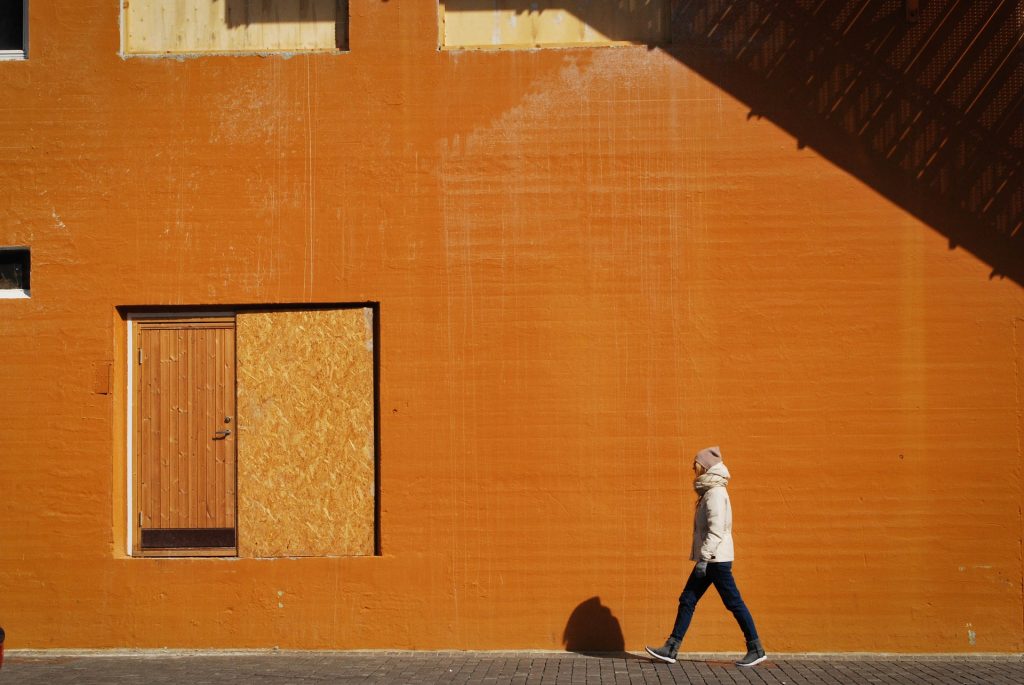
If you’re exploring a new city then walking is always going to be the cheapest option.
Do your research beforehand (or use apps like Google Maps or Maps.me) and plan to walk when you arrive.
Obviously, this won’t always be possible but as long as you are willing to walk then you’ll always be able to save money.
You could also do your own walking tour. Research the place before you visit and explore it by yourself on foot. Or better yet, look to see if there are any free walking tours! Loads of places offer this now and it’s a great way of meeting people and seeing a city.
This is a much better way of exploring a new place and you’ll be getting in some free exercise too.
Think of all the money you’ll be saving by not getting a taxi – use that to reward yourself with a nice cold beer at the end of the day!

5. Find Affordable Accommodation
When it comes to accommodation, there are plenty of cost-effective options available for travelers on a budget.
Sites such as Airbnb have made it easier than ever to find affordable and unique accommodations in cities around the world.
Furthermore, if you plan to stay in one location for an extended period of time, consider signing up for a home exchange program with other travelers who may be interested in visiting your city!
6. Learn to Barter

Everything in life is negotiable.
This is especially true in soft-culture countries like Mexico, Indonesia and Costa Rica. The price you are given is rarely the final price. For anything. Don’t worry if you don’t get the hang of it at first – like anything, practice makes perfect – just keep trying and you’ll get better.
What people don’t realise is that you can barter in Western countries too – it’s just called negotiating!
For example, hostels and hotels will want to sell their beds rather than let them go to waste. Try to offer a lower price than the one that’s advertised and see what happens – the worst that can happen is that they say no.
The most important thing is to remember that if you are happy with the price, then it’s a good price. Don’t get too hung up on arguing over 20 cents.
If you feel like you’re getting a good deal then take it and you’ll both be left feeling happy with the transaction!
READ MORE: How Much is a Taco in Mexico?

7. Stay Connected For Cheaper
Staying connected while abroad can be expensive if not done correctly – luckily there are a few tricks that travelers can use to avoid large roaming charges from their cellular provider.
Buy a local SIM card when arriving in each country that offers cheap data plans; use Wi-Fi whenever possible by searching for “free Wi-Fi near me”; or invest in an international hotspot device which allows multiple users to connect simultaneously over multiple devices!
8. Travel Slower

This is one of the best ways you can save money in the long run.
Often the most expensive part of traveling continuously is the actual traveling – e.g. planes, trains and automobiles.
If you’re flexible and willing to spend a longer time in each place then you can save a lot of money. You also get the chance to experience a lot more of the culture.
Any seasoned traveler will tell you – is the quality of the experience, not the number of places you see that matters.
As an added incentive, as you explore the area more you will start to find all the cheapest and less-known places to eat, drink and hang out – saving you even more money!
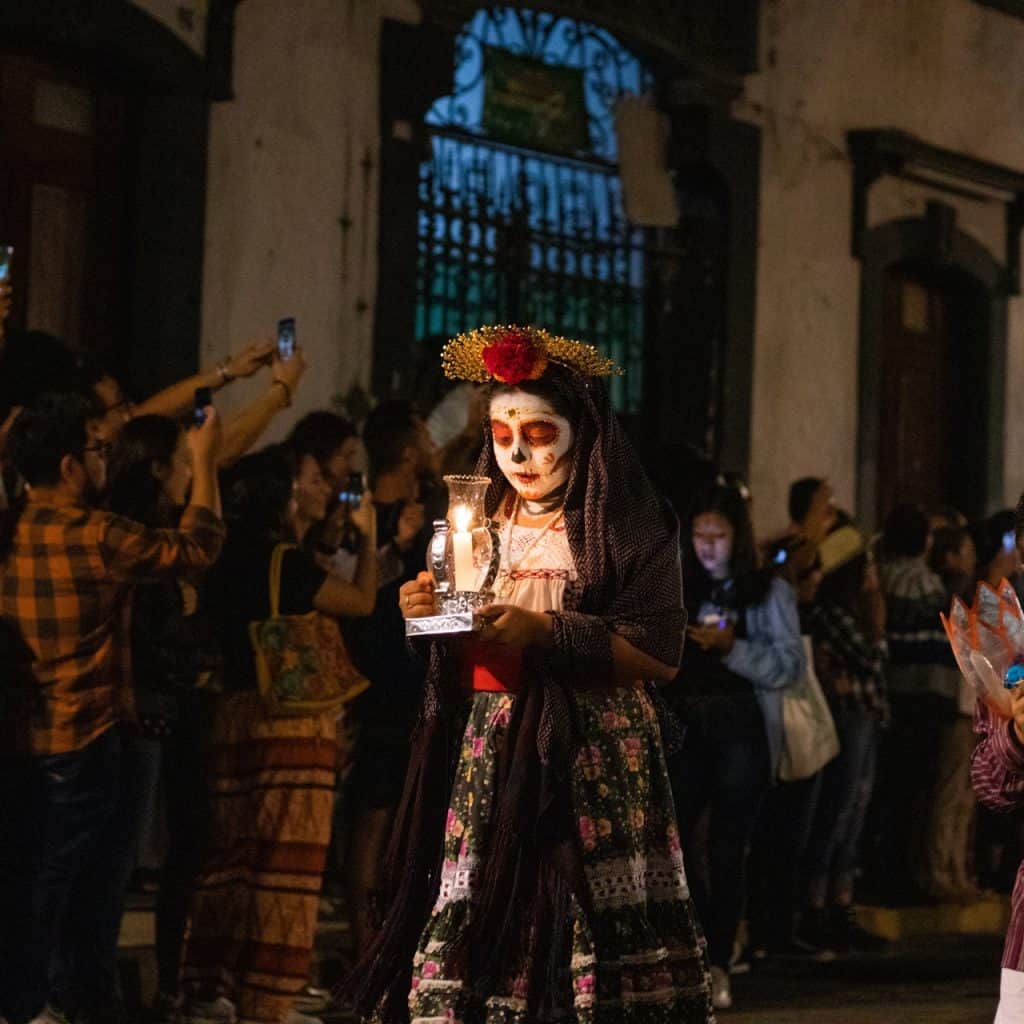
9. Research Local Events and Attractions Before You Go
Before heading out on your trip, spend some time researching the best free things to do in your destination city.
Many cities have free days at museums or discounts on tourist attractions like boat rides or bike rentals that could help you save some cash.
And don’t forget about local festivals or events – they’re often free or very affordable and can be great sources of entertainment (and maybe even food!).
It can also work in the opposite way though! Some places will be a lot more expensive if there is a special festival happening.
For example, the Day of The Dead in Mexico City might be a particularly expensive time to visit Mexico.
Bonus: Remember Your Budget!

The most important thing you can do when traveling continuously is to stick to your budget.
I cannot emphasize this enough. If you have a budget of $20 a day – stick to your budget of $20 a day. That doesn’t mean that if you’ve spent $19 you have to sleep on the street, just make sure it balances out over a week or so.
For example, if you spend $25 in one day, make sure you only spend $15 the next day. That means over two days you spent $40 (or $20 a day).
You’ll be surprised how easy it is to do and how much fun you can have while spending next to nothing.

How Continuous Travel Can Be Cheaper Than Staying at Home
Have you ever wondered if it would be cheaper to travel continuously than stay at home? Well, the answer might surprise you.
By carefully planning your travels and using the right resources, continuous travel can actually be more cost effective than staying in one place.

The Cost of Staying Put
When we look at the cost of staying put, there are certain expenses that are often taken for granted.
For example, rent or mortgage payments can be expensive and they don’t get any cheaper over time.
Other costs to consider include utilities, internet access, cable/satellite TV, food and dining out expenses, transportation costs (including car payments), insurance premiums, medical care and anything else that you have to pay for every month just to stay put.
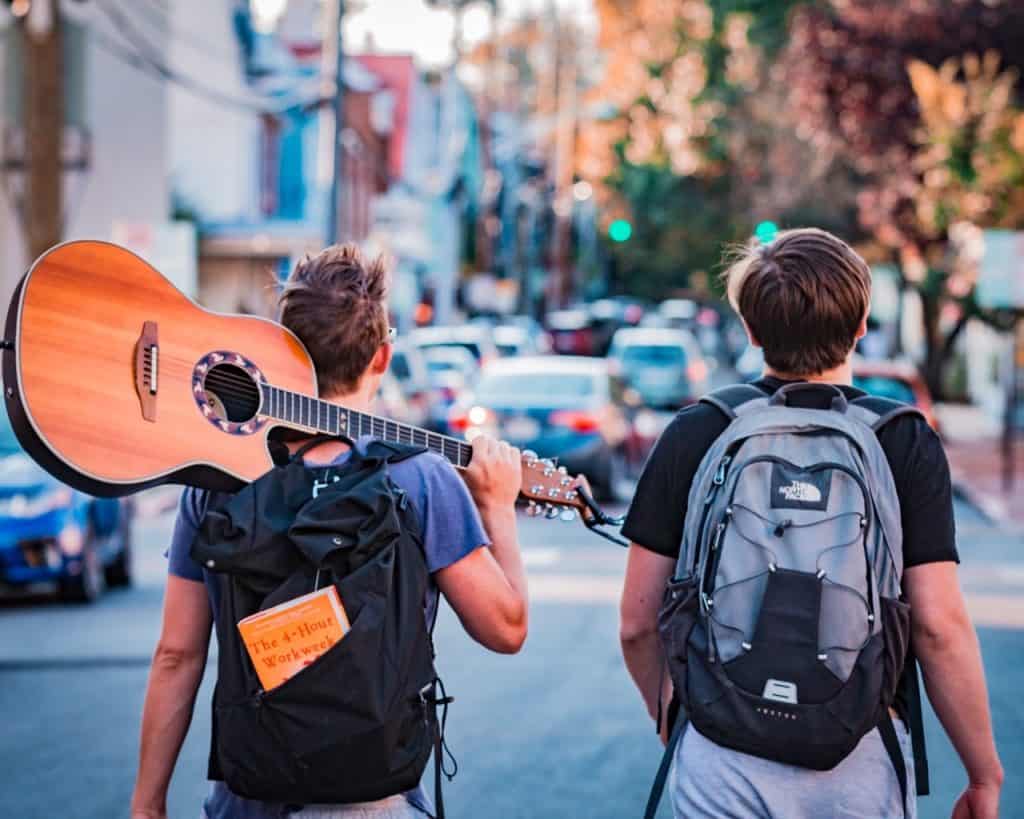
The Cost of Constant Travel
On the other hand, when you embrace a life of continuous travel there are several ways that you can save money.
For starters, rental cars can often be had for significantly less than what it would cost to own a car outright. Furthermore, many hotels offer discounts for extended stays and some even offer weekly rates that are lower than their nightly rates.
And if you’re willing to book ahead of time and take advantage of last-minute deals then you could end up saving even more money on accommodations.
Finally, utilizing public transportation in cities or towns where it is available (such as buses or trains), or walking, instead of driving a rental car around town all day long will help keep your transportation costs down as well.
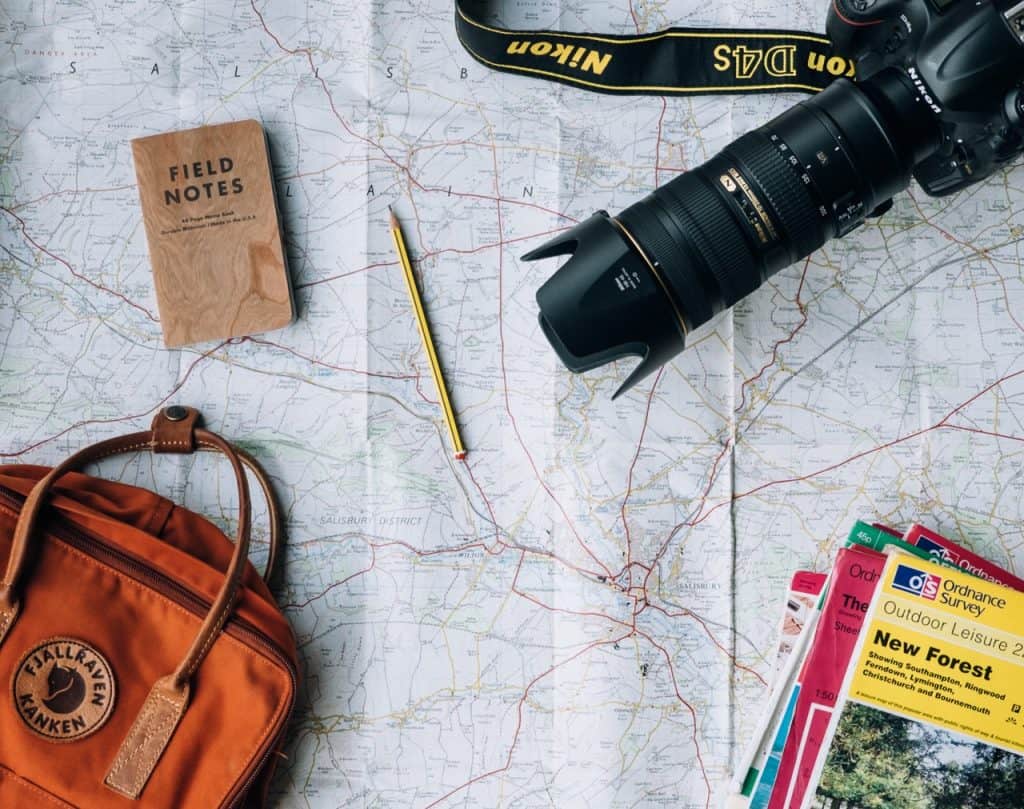
Traveling Smartly
Of course, none of this means much if you don’t plan your travels smartly.
Be sure to research accommodation options before arriving at a new destination so that you know exactly what kind of deals are available in advance; this will ensure that you get the best price possible without having to do too much haggling when you arrive.
Additionally, use websites like AirBnB or Couchsurfing to find affordable lodging options or sign up for loyalty programs with major airlines such as Delta or United Airlines so that you can take advantage of discounted flights whenever possible.
Finally, don’t forget about using credit card points and rewards programs – many hotels offer great deals when booking through points-based systems like these!
At the end of the day, continuous travel doesn’t have to break the bank – in fact it can actually be cheaper than staying at home depending on how smartly you plan your trips!
With just a little bit of planning and effort, it’s easy to see why continuous travel can be more cost-effective than living in one place all year round!

So How to Save Money While You Travel Continuously?
Well, there you have it. Those are our 9 best ways to save money while you travel.
We hope you’ve found these tips helpful and that they will help you save money on your travels.
Do you have any creative ways to save money while traveling that we didn’t mention? Please let us know in the comments below – we would love to hear from you!
The most important thing to remember is that travel is not as expensive as everyone thinks it is.

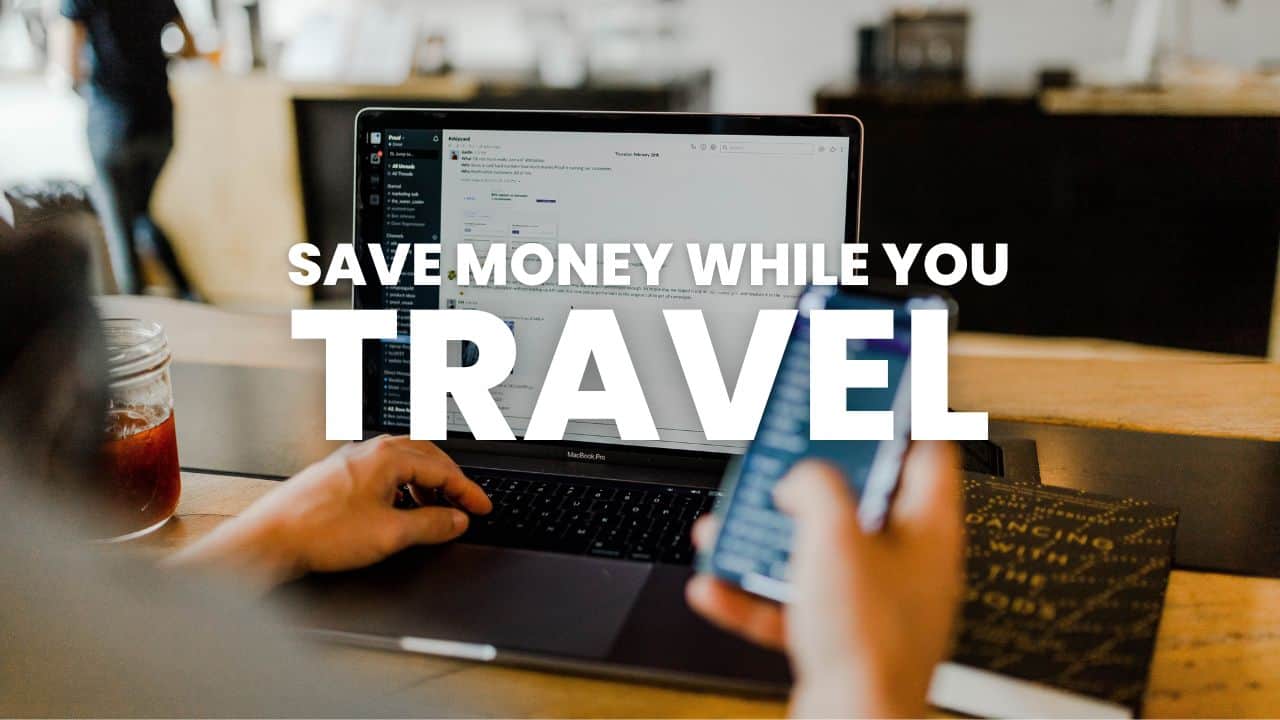
Hey! When you say you aim to budget $20 a day, does that include accommodation? Also are you willing to disclose how much you have spent in total in one year of travelling (including travel/airlines etc.)?
Thanks!